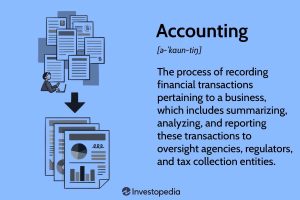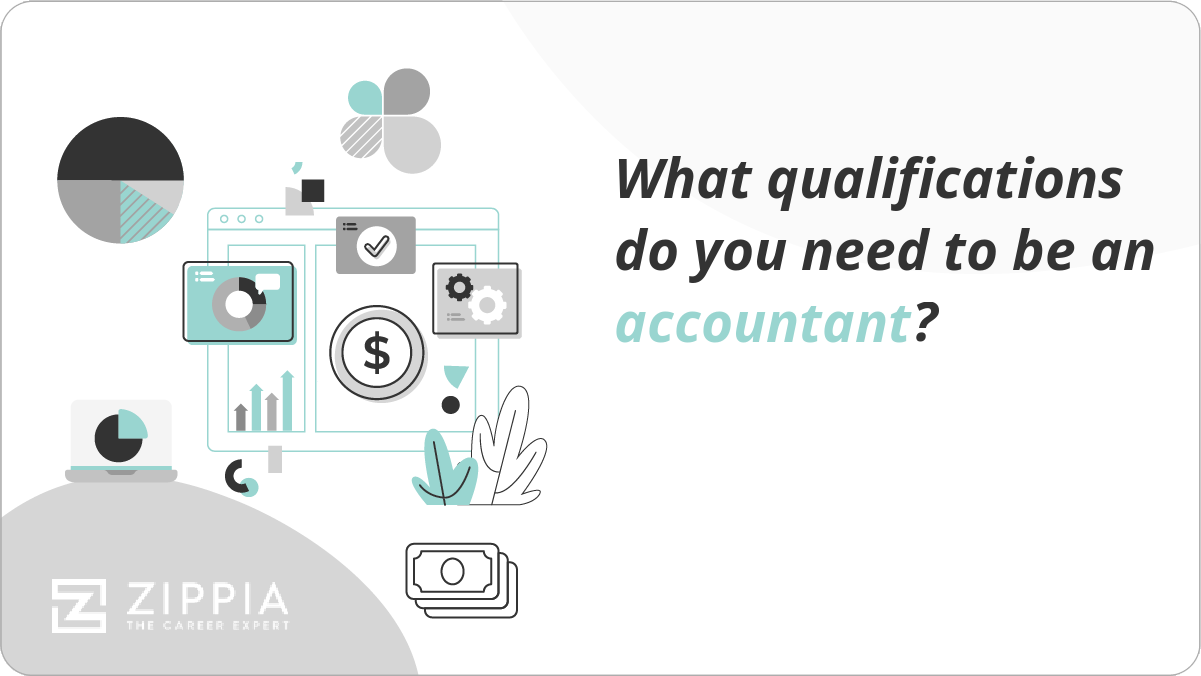Introduction
Becoming an accountant can be a rewarding career choice for individuals with a knack for numbers and a strong analytical mindset. Accountants play a vital role in managing financial information, analyzing data, and providing valuable insights to businesses and organizations. However, to excel in this profession, certain qualifications and skills are necessary. In this article, we will delve into the key qualifications required to pursue a successful career as an accountant. What qualification do I need to be an accountant?
Educational Qualifications
One of the primary requirements to become an accountant is obtaining the appropriate educational qualifications. Most accountants hold a bachelor’s degree in accounting, finance, or a related field. This degree equips them with fundamental knowledge in financial accounting, managerial accounting, taxation, auditing, and other essential areas.
1. Bachelor’s Degree in Accounting
A bachelor’s degree in accounting serves as a solid foundation for aspiring accountants. It typically includes courses in financial reporting, cost accounting, business law, economics, and business ethics. Students also learn how to use accounting software and gain proficiency in spreadsheet analysis.
When choosing an accounting program, it’s essential to ensure it is accredited by relevant accounting bodies or institutions. Accredited programs often offer a more comprehensive and up-to-date curriculum, giving students a competitive edge in the job market.
2. Additional Certifications
While a bachelor’s degree is the minimum requirement for entry into the accounting field, obtaining additional certifications can significantly enhance one’s career prospects. Some of the most sought-after certifications in accounting include:

a. Certified Public Accountant (CPA)
The CPA designation is widely recognized and highly valued in the accounting industry. Becoming a CPA involves passing a rigorous examination administered by the American Institute of Certified Public Accountants (AICPA) in the United States. Requirements for the CPA designation may vary from country to country.
The exam covers various accounting topics such as financial accounting, auditing, taxation, and business law. CPAs often enjoy better job opportunities, higher salaries, and increased credibility in the field.
b. Certified Management Accountant (CMA)
The CMA certification is designed for accountants interested in management accounting and financial management. Administered by the Institute of Management Accountants (IMA), the CMA exam assesses candidates’ expertise in financial planning, analysis, control, and decision support.
CMA-certified professionals are valuable assets to organizations seeking financial experts who can contribute to strategic decision-making processes. https://celestinos.com.au/celestino-accountants/
Skills and Competencies
Beyond educational qualifications, accountants need to possess certain skills and competencies to excel in their roles. Some essential skills include:
1. Analytical Skills
Accountants deal with vast amounts of financial data daily. Therefore, strong analytical skills are crucial to interpret and make sense of this information accurately. Analyzing financial statements, identifying trends, and spotting potential discrepancies are common tasks for accountants.
2. Attention to Detail
The role of an accountant demands precision and accuracy. Even the smallest errors in financial reports can have significant consequences. Attention to detail is essential when reconciling accounts, preparing tax returns, and conducting audits.

3. IT Proficiency
In today’s digital age, accountants must be adept at using accounting software and other financial tools. Proficiency in spreadsheets, databases, and enterprise resource planning (ERP) systems is essential for efficient data management and analysis. What qualification do I need to be an accountant?
4. Communication Skills
Accountants often collaborate with colleagues, clients, and stakeholders. Effective communication skills, both written and verbal, are necessary to explain complex financial concepts clearly and present findings convincingly.
5. Ethical Standards
Integrity and ethical conduct are fundamental traits for accountants. As they handle sensitive financial information, they must adhere to strict ethical standards and maintain confidentiality.
Work Experience
While educational qualifications and certifications provide a strong foundation, gaining practical work experience is equally vital for aspiring accountants.
1. Internships and Entry-Level Positions
Many accounting students kickstart their careers through internships or entry-level positions at accounting firms, government agencies, or corporate finance departments. These opportunities allow them to apply their knowledge in real-world scenarios, gain exposure to various accounting functions, and build valuable professional networks.
2. Advancing to Mid-Level Positions
As accountants accumulate experience, they can progress to mid-level positions such as senior accountants, financial analysts, or tax specialists. In these roles, they may take on more complex accounting tasks and supervise junior staff.
3. Specialization
Accountants can choose to specialize in specific areas such as taxation, forensic accounting, auditing, or management accounting. Specialization often requires additional training and certifications but can open up niche career paths and opportunities for advancement.
Continuing Professional Education (CPE)
To stay relevant in the ever-evolving accounting field, accountants must engage in continuing professional education (CPE).
1. Keeping Abreast of Regulatory Changes
Tax laws, accounting standards, and financial regulations are subject to frequent changes. Accountants must stay updated with these developments to ensure their practices comply with the latest requirements.
2. Pursuing Advanced Certifications
Obtaining advanced certifications beyond the bachelor’s degree can enhance an accountant’s skill set and increase their value to employers. Pursuing certifications like the CPA or CMA mentioned earlier can be part of an accountant’s ongoing professional development.
3. Workshops and Seminars
Attending workshops, seminars, and industry conferences provides accountants with opportunities to learn about emerging trends, best practices, and innovative technologies in the field.
Conclusion
Becoming an accountant requires a combination of educational qualifications, certifications, skills, and work experience. A bachelor’s degree in accounting serves as the starting point, followed by obtaining sought-after certifications like the CPA or CMA. Accountants must also possess analytical skills, attention to detail, and effective communication abilities. Practical experience gained through internships and entry-level positions is invaluable, and continued professional development ensures accountants remain competent and up-to-date in the dynamic world of finance and accounting. By fulfilling these qualifications and continuously expanding their knowledge, aspiring accountants can pave the way for a successful and fulfilling career in the field of accounting. What qualification do I need to be an accountant?


